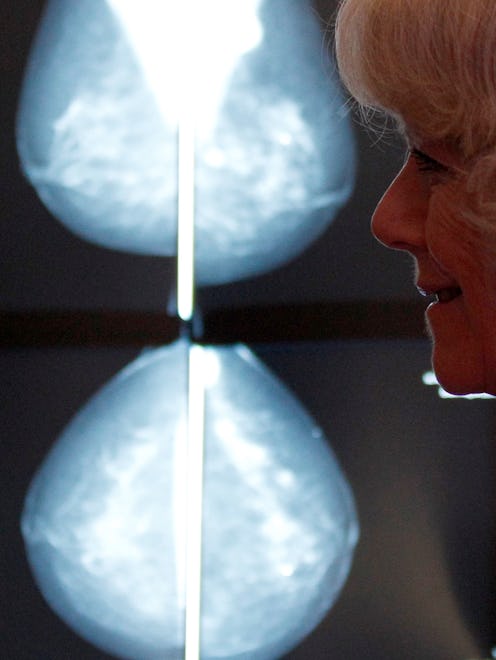News
This Could Increase Your Risk of Breast Cancer
Magazines and other products marketed towards women may continually tell us that "bigger is better" when it comes to breasts, but the same does not apply to breast tissue. Apparently, having dense breast tissue can actually make it difficult for your doctor to read your mammograms and may even increase your risk of breast cancer. In short, dense breast tissue can be dangerous — and about 40 percent of women have it.
Dense breast tissue basically means women have more connective fibers in their breasts. This tissue shows up as white on a mammogram and impedes the doctor's ability to read it clearly and search for tumors. “It’s like looking through a window with snow on it, searching for a drop of milk," Dr. Carolyn Runowicz, a professor of obstetrics and gynecology, explained to the New York Times. Tumors also appear as white on mammograms.
In an article in yesterday's New York Times, one women wrote that it took more than six mammograms before she was even informed that she had dense breast tissue — and each one had come back as normal. "Now I discover these images have been obscured," she wrote. She added that doctors rarely told women that they had dense breast tissue before 2009, when new legislation began emerging in numerous states, requiring them to inform their patients if they had this trait. This legislation is the result of the campaigning of a woman from Connecticut who was not told she had dense breasts until doctors found an advanced cancer that previous mammograms had missed. By then it had spread to her lymph nodes.
So what should you do? Sadly, there are currently no clear medical guidelines as to how women should proceed after learning they have dense breasts. Different states have different laws concerning this: New York law suggests you consult your doctor while Connecticut law encourages you to have an additional ultrasound or MRI. To combat the potential increase in breast cancer risk, breastcancer.org suggests the usual healthy diet, exercise, and avoidance of smoking and alcohol. It's also worth knowing that dense breast tissue can be inherited, so if your mother has it, it's likely you will to.But there's no need to panic.
“Mammograms pick up cancers in women with dense breasts every day,” Diagnostic Radiologist Carol Lee told the New York Times. But Dr. Runowicz added that, for dense breasts, a digital mammogram is preferable to film, and a three-dimensional mammogram is even better.
In short, dense breasta aren't cause to freak out. It's just breast to be informed.
